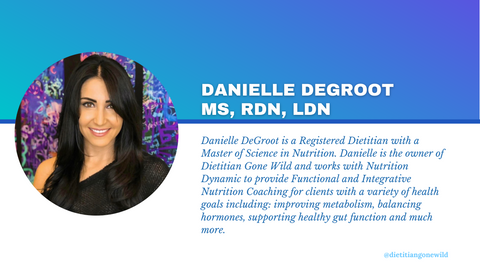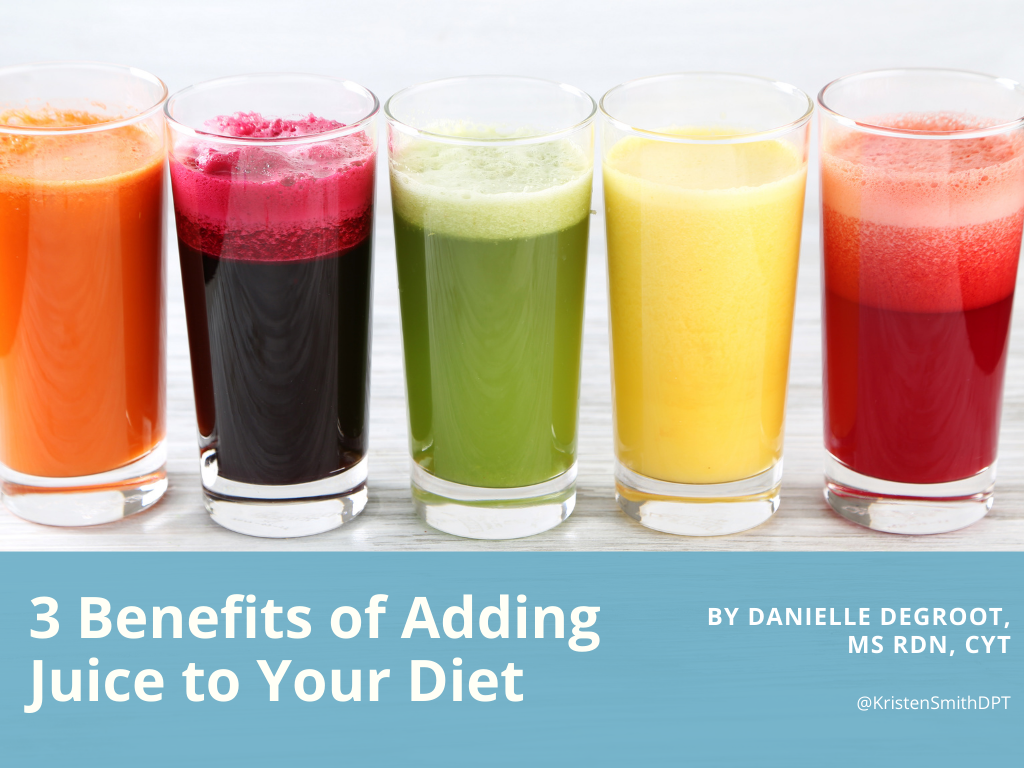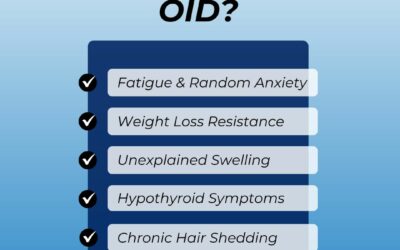by Danielle DeGroot, MS, RDN, LDN – @dietitiangonewild
With so much conflicting nutrition information out there, juicing has become a bit of a controversial topic. Some have grown scared of juice or dubbed it as “bad” because of the sugar content while others claim juicing is the cure to almost anything. When it comes to nutrition, we love to gravitate towards an “all or nothing” mentality for attention grabbing headlines, but the truth often lies somewhere in the middle. However, whole foods are not inherently “bad.” It’s typically what us humans do to food or how we use food that makes it “unhealthy.” In the case of juice, 100% fruit juice can be beneficial if it isn’t modified by us humans to have a boatload of added sugar in it. Paired with a balanced diet including proteins, healthy fats and plenty of fiber, juice can have several added benefits in the diet. Here are a few:
- Lowering risk of disease: Juice is packed with antioxidants and can add a high concentration of anti-inflammatory nutrients to the diet. Most people are not hitting the recommended daily intake of fruits and vegetables, which is 2 servings fruit and 3 servings vegetables. At Vidal Coaching, we actually recommend getting at least 5 servings of vegetables and 2-3 servings of fruit daily. This can be a big challenge for some who are not used to eating fruits and vegetables, but consuming more is associated with decreased risk of disease and death. Juice can be a great way to add in more nutrients from fruits and veggies without the bulk of consuming the whole food. Paired with an adequate fiber intake, incorporating juices can be a way to sneak in a higher dose of these nutrients per day!
- It’s easy on your gut! Juice is easily digestible and absorbable because your gut doesn’t have to do much work to break it down without the fiber. This allows your gut to take a rest while you still reap the benefits of all the nutrients.
- Improved energy. Because it doesn’t have to be broken down and is readily absorbable, juice is a quick source of energy. Again, not all sugar is bad and our bodies use that sugar for energy. Adding ingredients with B vitamins to juice can help provide you with natural energy which may be a great substitute if you have a regular caffeine habit.
FUN FACT from our Flush Guide at Vidal Coaching: Roughly 6 lbs. of produce are in 16 oz. of juice – they help your gut easily extract a high volume of key phytonutrients & micronutrients without having to do the extra work to break down fiber.
Interested in our program and how the flush protocol can help you detox? CLICK HERE for a free consultation with our team!

References:
- Nicklas, Theresa, Ronald E. Kleinman, and Carol E. O’Neil. “Taking into account scientific evidence showing the benefits of 100% fruit juice.” American journal of public health 102.12 (2012): e4.
- Bakuradze, Tamara, et al. “Antioxidative activity and health benefits of anthocyanin-rich fruit juice in healthy volunteers.” Free radical research 53.sup1 (2019): 1045-1055.
- Kean, Rebecca J., et al. “Chronic consumption of flavanone-rich orange juice is associated with cognitive benefits: an 8-wk, randomized, double-blind, placebo-controlled trial in healthy older adults.” The American journal of clinical nutrition 101.3 (2015): 506-514.
- Rampersaud, Gail C., and M. Filomena Valim. “100% citrus juice: Nutritional contribution, dietary benefits, and association with anthropometric measures.” Critical reviews in food science and nutrition 57.1 (2017): 129-140.
- Rowe, Cheryl A., et al. “Regular consumption of concord grape juice benefits human immunity.” Journal of medicinal food 14.1-2 (2011): 69-78.





